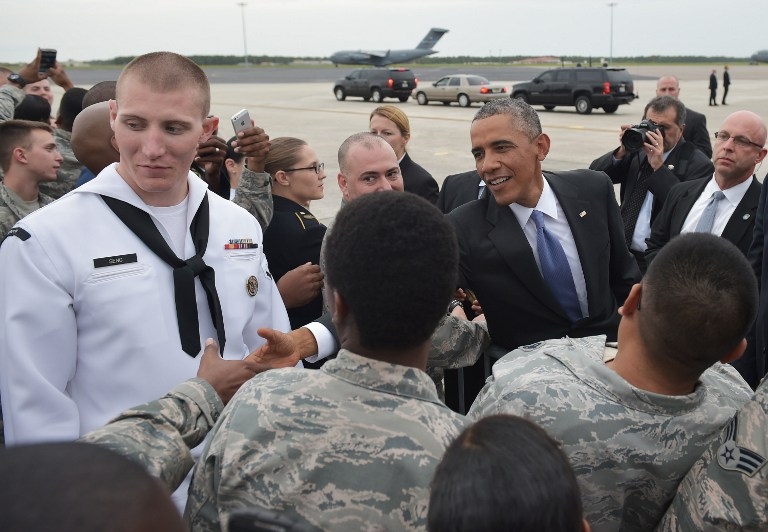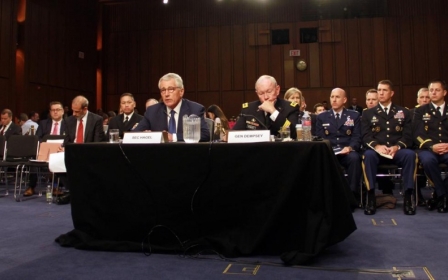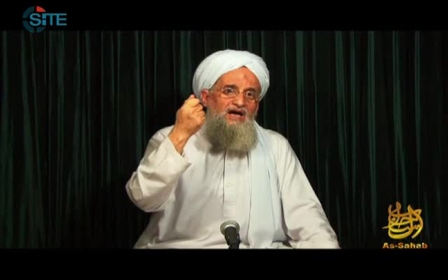Obama huddles with generals on IS assault plans

President Barack Obama meets Wednesday with generals planning his assault against the Islamic State group in Syria and Iraq while his administration scrambled to play down suggestions that ground troops could be deployed in the fight.
Obama will sit down with General Lloyd Austin, chief of US Central Command at his Florida headquarters, to assess how the military is following through on his new strategy to combat IS announced last week.
US jets in Iraq have already made good on Obama's vow to expand the mandate of American forces to go after the militant group in Iraq, following the first raids of the stepped up campaign outside Baghdad overnight Monday.
His effort won a rare Republican endorsement on Tuesday when the party's leaders in the House of Representatives and the Senate backed his strategy.
But some lawmakers still complained it lacks punch, reflecting the president's long-held desire to avoid another Middle East war.
Meanwhile, many commentators have called into question the motives behind the full-throtle approach of Obama who remains under pressure to demonstrate that his anti-IS coalition is a legitimate fighting force and not simply an alliance drummed up by his administration for political convenience.
"Another American war 'on behalf of' the people of the Middle East is imminent," Abdel Bari Atwan, commentator and editor-in-chief of news website Rai al-Youm, wrote recently. "That it is directed against Islamic State is not an adequate cover for what may well be the real goal: to consolidate American hegemony again through new military bases and full control over oil wealth."
"An existential struggle is taking place in the Arab world today,"New York Times columnist Tom Friedman wrote on Tuesday. "But is it ours or is it theirs? Before we step up military action in Iraq and Syria, that’s the question that needs answering."
Iraqi commentator Faris al-Khitab wrote in Aljazeera Arabic that Arab states participating in anti-IS coalition “must bear in mind and study the experiences of the last two wars in Iraq, and even during the Arab Spring. At all of these junctures, Washington warned a number of Arab states that they were in imminent danger, either from Saddam Hussein or from their own peoples during waves of popular Arab protests.”
“This war will be costly, in terms of finances and the lives of Arab citizens," al-Khitab wrote. "The Arab states that have announced their readiness to enter the new world war in Iraq are asked to take care at every step, and should not fall to the policy of media and psychological hype relied upon by Washington, London and Paris, by which they depict IS as a danger that could bring down every regime.”
Obama arrived at MacDill Air Force base in Tampa, where Centcom is headquartered, late Tuesday. In his meeting on Wednesday with generals, Obama "plans to discuss the plan for building an international coalition to degrade and destroy (IS)," White House spokesman Josh Earnest said.
Obama, who will give public remarks during his trip to the base, will also meet senior representatives from nations that form part of Central Command's theater of operations, which encompasses the troubled belt of South Asia, Central Asia and the Middle East.
"Many of these nations will be an important part of the international coalition that the President will be leading against IS," said Earnest.
Intense diplomacy
Officials say the president will conduct intense diplomacy next week on firming up the grouping to go after Islamic State, when he is at the United Nations General Assembly in New York.
The White House was forced Tuesday into its latest effort to clarify its strategy on IS, after his top US military officer, Chairman of the Joint Chiefs of Staff General Martin Dempsey, said US advisors could yet be sent into combat alongside Iraqi forces against IS.
That statement appeared to call into question the president's repeated vow that there will be no US "boots on the ground" deployments in Iraq, after he fulfilled his campaign promise to bring US forces home.
Earnest sought to finesse the situation, saying that Dempsey was merely "referring to a hypothetical scenario in which there might be a future situation in which he might make a tactical recommendation."
The administration is encouraged by bipartisan work under way on Capitol Hill to give the president the authority to arm and train moderate Syrian rebels to pressure IS inside Syria when US air strikes finally begin in the country.
Republican House Speaker John Boehner on Tuesday said he believed the president's strategy was a "sound one."
"There's no reason for us not to do what the president asked us to do," he said.
There are still some reservations, though.
"I don't think the president's strategy is ever very clear, or sufficiently clear," said Republican Senator John Thune.
"The American people got there before he did ... but I think at least the president is ending up in what I think is the right place" with a request for authorization to train and equip vetted rebels."
New MEE newsletter: Jerusalem Dispatch
Sign up to get the latest insights and analysis on Israel-Palestine, alongside Turkey Unpacked and other MEE newsletters
Middle East Eye delivers independent and unrivalled coverage and analysis of the Middle East, North Africa and beyond. To learn more about republishing this content and the associated fees, please fill out this form. More about MEE can be found here.




